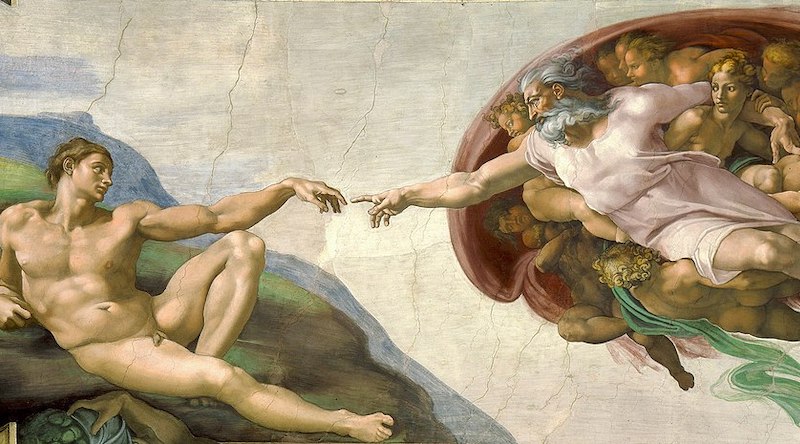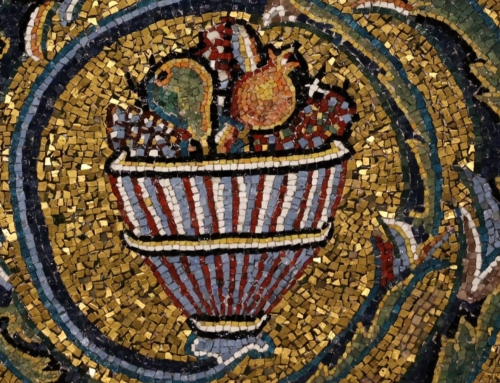The controversial Canadian psychologist Jordan Peterson has a notoriously complicated relationship with the question “Do you believe in God?” He famously claims that “I act as if God exists,” while treating God as such a transcendentally obscure concept that merely affirming or negating his existence would be crass. This troubles religious people and atheists alike, many of whom would like Peterson to man up and take a stand (tell us what you really think, Bucko). And yet, the Canadian psychologist has been associated with renewed interest in religion, and in Catholicism in particular. But perhaps in his very silence before the divine, the Canadian psychologist understands something about God that few of his interlocutors can grasp.
Some years ago, in a discussion with public atheist Sam Harris, Peterson finally admitted that he believes in God. Sort of. He posited propositions such as:
“Whatever God is is expressed in the truthful speech that rectifies pathological hierarchies.”
“God is the highest value in the hierarchy of values.”
“God is the source of judgment and mercy in guilt.”
These statements paint God in a vaguely deistic or pantheistic way. When we say that God is expressed in truthful speech, are we saying that God is the transcendent truth undergirding our ability to say true things and do good? Or are we saying that God is simply the collective of human truthfulness? Peterson dares not guess.
Sam Harris was quite annoyed with Peterson. The latter, apparently, merely pointed to the existence of fairly obvious things (morality, society, truth, etc.) and identified them with God. Certainly, truthfulness will drive out “pathological hierarchies.” But for Harris, such definitions do not correspond to what ordinary people think of as God. As Harris reasoned, Peterson would be better to simply say he does not believe in the ordinary concept of God. Yet Peterson refused to do so.
Thomas Aquinas can help us make sense of Peterson’s silence. The Dominican taught that, when we reason about God, we are limited to analogy (ST I, q. 13, a. 5). For example, when we say “God is truth,” we do not mean that he is truth in the same way that truth is in our minds. Yet we recognize that the truth of our minds somehow images, albeit deficiently, the truth that is God (ST I, q. 16, a. 5). By drawing analogies from created reality, we reach a true knowledge about God, even if our finite analogies cannot reveal to us the infinite God in all his glory (ST I, q. 2, a. 2, ad 3). The unaided human mind cannot make sense of the God who has entered into human history and seeks to dwell in our souls. For this, we require the supernatural gift of divine faith. Without faith, feeble analogy is the best we can do. Yet analogy, feeble as it is, gives us a real knowledge. And any knowledge about the divine is priceless.
When Jordan Peterson says that God “is expressed in the truthful speech that rectifies pathological hierarchies,” he is reasoning analogically. God has to do with the truth. This truth is greater than us, provides order in our lives, and makes often heavy demands of us. But whether this truth is the kind of thing that becomes man and rises from the dead, Peterson cannot presume to judge. He does not know whether he agrees more with the atheist or the believer. Both could take up his open-ended propositions. This can be frustrating for those who wish for Peterson to take a side. But if the psychologist can be faulted for failing to exhaust what natural reason can say about God, he is to be commended for going no further than he can. His ambivalence about God’s existence is rooted in the inescapable smallness of the human mind.
Despite his silence in divine matters, Peterson does have much to say about the journey of the mind toward God. He values truth-telling above all else, and provides practical advice for living a truth-centered life. For all its smallness, Peterson’s analogy is real, and it matters. Paying the high price for truth in our lives will bring us closer to Truth itself. Analogy, weak as it is, can still help us to reach out to the God who has revealed himself to us.
✠
Image: Michelangelo, The Creation of Adam







